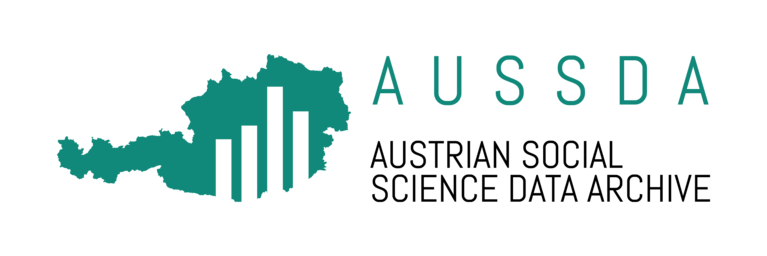The AUSSDA Teaching & Learning Dataverse
Are you a lecturer and would like to find suitable data sets for teaching with just one click? Or are you a student looking for data for your thesis? We have compiled relevant datasets for you in one place
Every semester, thousands of students in Austria are introduced to empirical analyses in various courses or are expected to write papers using empirical data.
This requires high-quality data that is well documented and comprehensibly structured. To help lecturers and students find data that is particularly well suited to their studies, we have established our Dataverse for teaching and learning.
It is intended to help lecturers find high-quality and interesting data sets related to Austria for their classes. At the same time, we want to support students in identifying suitable data sets for seminar papers or theses.
The lecturers for research methods from our User Advisory Board have nominated the following datasets for the Teaching & Learning Dataverse:
Alexander Seymer, Senior Lecturer for Empirical Social Research at Paris Lodron University Salzburg, suggests lecturers and students to take a look at the studies of the "Social Survey Austria" and to consider the international "Values in Crisis" study as teaching material.

Alexander Seymer. Photo: Daniela Gruber
Values in Crisis International (SUF Edition)
“The dataset provides information on the consequences of the Covid 19 pandemic for 18 countries from Asia, Europe and South America, which makes the dataset very suitable for demonstrating the challenges and opportunities of cross-cultural and cross-country comparative research. In addition to intriguing content-related questions about changes in values and attitudes in times of crisis, the methodological challenges of harmonising or weighting such a data set can also be addressed in a seminar, using the method report. Thus, the data can be used in very different teaching formats - for example, in teaching units for data visualisation and presentation forms, for which the large number of countries is helpful. However, the data set is also suitable for simple analyses to make students become accustomed to larger data sets. Finally, it can also be used for courses in which participants are to develop questions independently.”
Social Survey Austria (SSÖ)
"The Social Survey Austria as one of the central survey programmes for the analysis of socio-structural changes is indispensable for teaching. It is a good example of the development of survey research in Austria, where a nationwide consortium carries and further develops the survey. Therefore, all students in Austria with in-depth quantitative training should have worked with this data set. Because of its link to the International Social Survey Programme, the special surveys on migrants and the fact that earlier waves go back to 1986, the SSÖ can be used in a variety of ways in teaching. Using the different survey waves, students can practise simple descriptive statistical analyses in order to make social change easily tangible in the data. At the same time, the rigorous methodology in the implementation also enables complex analyses and can thus also be used for final theses."
Natalia Wächter, Tenure Track Professor in Social Pedagogy at the University of Graz, recommends a special edition of the European Values Study as well as Microcensus dataset.

Natalia Wächter. Photo: Fotostudio Wilke
The European Values Study - Austrian COVID-19 Special Edition 2021-22 Including Youth Oversample
"This particular dataset, collected as part of the European Values Study (EVS), is well suited for social pedagogy studies, because it focuses on the impacts of the COVID-19 pandemic on the Austrian population, and particularly on the young population (oversampling).”
Microcensus Ad-Hoc-Module 'Young people on the labour market' 2016 (SUF edition)
"This dataset is particularly suitable for social pedagogy as it focuses on the central issue of the transition from school to work in the Austrian context. In addition to the specific data on education, job search and work, the dataset also contains all other data included in the Microcensus that were collected from the 15-34 year old respondents."
Thirdly, Dimitri Prandner, a long-time methods lecturer and Senior Scientist for Empirical Research Data as well as the representative of AUSSDA at JKU Linz, recommends a data set for the evaluation of the MORE programme for students with a refugee background from 2019.

Dimitri Prandner. Photo: AUSSDA/derknopfdruecker.com
Tertiary Education Opportunities for Refugees: MORE - Experiences and Insights (SUF edition)
"This dataset was created as part of a teaching research internship and was awarded the Ars Docendi in 2020."
The datasets mentioned above offer a variety of methodological approaches and can also be used in English-language courses, especially the "Values in Crisis" study.
To make it even easier for students and teachers to use the data, we have updated our AUSSDA User Guide. It provides a step-by-step introduction to using the AUSSDA Dataverse. Explore the various options and resources available to you to enrich your teaching and learning experience.
If you are already using a dataset in class or have used one for a thesis and would like to see it displayed in our new Dataverse – drop us a line at info@aussda.at!
